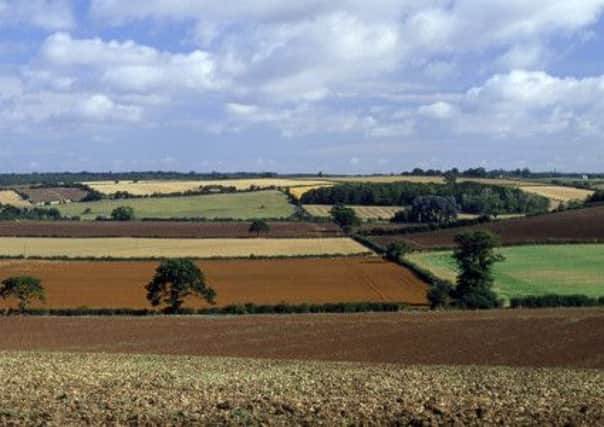Council smallholding sale ‘blocks new entrants’


Figures published by the Department for Environment, Food and Rural Affairs (Defra) show North Yorkshire County Council has sold or exchanged significantly more land than any other ‘Smallholding Authority’ in England in 2013/14. The only other county council to sell more than 100 hectares was Somerset (133).
Local authorities originally purchased farms to provide a living for soldiers returning from the First World War and traditionally, the plots have provided a first step for those wishing to farm, particularly for younger new entrants who cannot afford to buy farmland of their own.
Advertisement
Hide AdAdvertisement
Hide AdOn average, these smallholders paid £267.34 in rent per hectare in 2013/14, Defra figures show.
But many county councils now seek to sell smallholdings when existing tenancies end. In England, the number of hectares let as smallholdings fell by 1.25 per cent in 2013/14.
George Dunn, chief executive of the Tenant Farmers Association, said the policy pursued by North Yorkshire County Council, and others, was a source of “extreme annoyance”.
“There is so much said these days about trying to encourage young people to come into the industry yet here we are moving the first rung of the ladder away.”
Advertisement
Hide AdAdvertisement
Hide AdTenant farmer, Andrew Wilson, of Slingsby, near Malton and a member of the Future Farmers of Yorkshire group, agreed.
“This is disappointing short termism from North Yorkshire County Council. Once the family silver is sold, it’s gone forever. Where will the agricultural entrepreneurs of tomorrow learn the business of farming without the facility county council farms have provided for many years?”
With the average age of a farmer now 58, the Royal Agricultural Society of England has estimated the UK will need 60,000 new entrants in the decade to 2022.
North Yorkshire County Council disputed the Defra figures, claiming its records showed 158 hectares - seven farms - had been sold in 2013/14.
Advertisement
Hide AdAdvertisement
Hide AdA statement read: “The proceeds from sales are used to invest in front-line services across the county, including care of the elderly and protection of children. At a time when the county council budget is under severe pressure - since 2011, the county council has implemented and made plans for total cuts of around £170m, amounting to one third of its total spending – it must prioritise these critical statutory services.”
But Mr Dunn said: “We understand the need for councils to be investing in frontline services but what happens when all these assets have gone? What will happen is that they will have to increase council tax. If these councils were more sensible they would be able to find best value by maintaining these smallholdings in a different way.”
There are benefits to the sell-off however, Lucinda Douglas, regional tenants’ adviser for the National Farmers’ Union, said.
“It is of concern if there are fewer opportunities for new entrants following the sale of county council farms, however we must remember that the sale of these farms to existing tenants gives them the opportunity to achieve greater stability for their business and invest for the long term.”